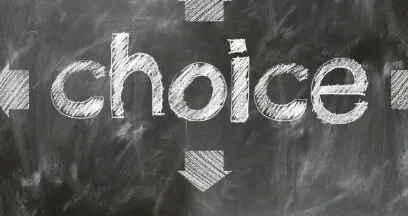
It is wartime. You and your kindred outcasts are escaping aggressors, when a child starts to cry. You cover her mouth to hinder the sound. On the off chance that you expel your hand, her crying will draw the consideration of the officers, who will execute everybody. In the event that you cover the tyke, you'll spare yourself and the others.
In the event that you were in that circumstance, which was sensationalized in the last scene of the '70s and '80s TV arrangement "M.A.S.H.," what might you do?
The consequences of another UCLA consider propose that researchers could make a decent figure in light of how the brain reacts when people watch another person encounter torment. The investigation found that those reactions foresee whether individuals will be slanted to abstain from making hurt others when facing moral situations.
 "The discoveries give us a look into what is the idea of profound quality," said Dr. Marco Iacoboni, chief of the Neuromodulation Lab at UCLA's Ahmanson-Lovelace Brain Mapping Center and the examination's senior creator. "This is a foundational question to comprehend ourselves, and to see how the cerebrum shapes our own temperament."
In the investigation, which was distributed in Frontiers in Integrative Neuroscience, Iacoboni and associates broke down mirror neurons, mind cells that react similarly when somebody plays out an activity or essentially watches another person play out a similar activity. Mirror neurons assume an essential part in how individuals learn through mimicry and feel compassion for others.
When you jump while seeing somebody encounter torment—a wonder called "neural reverberation"— reflect neurons are mindful.
Iacoboni thought about whether neural reverberation may assume a part in how individuals explore confused issues that require both cognizant consultation and thought of another's sentiments.
To discover, specialists indicated 19 volunteers two recordings: one of a hypodermic needle penetrating a hand, and another of a hand being tenderly touched by a cotton swab. Amid both, the researchers utilized a useful MRI machine to quantify movement in the volunteers' brains.
Analysts later asked the members how they would act in an assortment of good quandaries, including the situation including the crying infant amid wartime, the possibility of tormenting someone else to keep a bomb from killing a few other individuals and whether to hurt research creatures with a specific end goal to cure AIDS.
Members likewise reacted to situations in which causing damage would exacerbate the world—delivering hurt on someone else keeping in mind the end goal to dodge two weeks of hard work, for instance—to check their ability to cause hurt for moral reasons and for less-honorable thought processes.
Iacoboni and his associates guessed that individuals who had more noteworthy neural reverberation than alternate members while watching the hand-penetrating video would likewise be less inclined to hush the child in the theoretical problem, and that ended up being valid. In fact, individuals with more grounded action in the mediocre frontal cortex, a piece of the cerebrum basic for sympathy and impersonation, were less ready to cause coordinate mischief, for example, quieting the child.
Yet, the specialists found no connection between's kin's cerebrum movement and their eagerness to theoretically hurt one individual in light of a legitimate concern for more prominent's benefit, for example, quieting the infant to spare more lives. Those choices are thought to originate from more psychological, deliberative procedures.
The investigation affirms that honest to goodness worry for others', torment assumes a causal part in moral quandary judgments, Iacoboni said. At the end of the day, a man's refusal to hush the child is because of worry for the infant, not only the individual's own particular inconvenience in making that move.
Iacoboni's next undertaking will investigate whether a man's basic leadership in moral predicaments can be impacted by diminishing or improving movement in the territories of the cerebrum that were focused in the present examination.
"It is captivating to check whether we can utilize mind incitement to change complex good choices through affecting the measure of concern individuals encounter for others' torment," Iacoboni said. "It could give another strategy to expanding worry for others', prosperity."
The examination could point to an approach to help individuals with mental clutters, for example, schizophrenia that make relational correspondence troublesome, Iacoboni said.